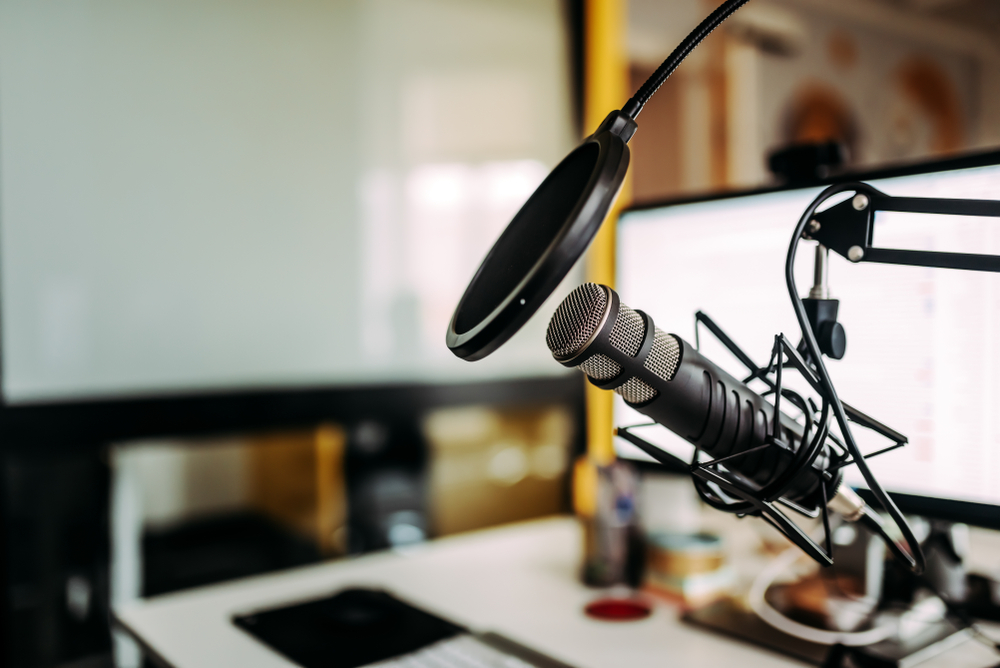In case you’ve been living under a rock – you’ve likely seen the massive news that Spotify has acquired podcast production company Gimlet Media for a reported $230 Million USD and their surprise acquisition of podcast app Anchor for an undisclosed sum. There’s a lot of conjecture in the industry about what these actually mean for podcasting, and in my opinion this is a huge benefit for every other podcast provider.
Just think about the role Spotify has played in recent years. They’ve largely been focused on music streaming and have built a sizeable audience. And now they are pushing to become more than just a music streaming provider, they want to become the go-to location for accessing premium audio content. They changed the app title to say ‘Music and Podcasts’ and in a blog post Spotify Founder and CEO Daniel Ek said the platform believes that “more than 20% of all Spotify listening will be non-music content.” The company is clearly signaling a focus on producing content which is a departure from their mostly tech focused acquisitions of the past. This makes the purchase of Gimlet really interesting.
Gimlet Media started life back in 2014 when Alex Blumberg and Matt Lieber rode the wave generated by the astounding success created by the podcast Serial. At the time Alex Blumberg left his job at Planet Money to document his struggles of starting a company in the popular podcast Start-Up. From the very beginning the company was built on a funding model very similar to a tech company. Early on they raised $675,000 in debt and also closed a $1.5 Million seed round. They then raised a few more rounds and in total have brought in more than $28.5 Million dollars in funding with the most recent valuation placing them at a $70 Million valuation. Given that so much VC cash was put in relatively early it was always inevitable that there would be an exit, and $230 Million is a nice return.
[quote type=”right”]Investors would have wanted to see a return and I was fairly certain it would be in 2019, however I didn’t expect it to be Spotify.[/quote]
Spotify are clearly signalling their desire to be a major content player. In the same way that Netflix also creates great content, Spotify is hoping that by acquiring a company like Gimlet they are acquiring a valuable resource that can grow with the platform. And Gimlet has been doing an awful lot of IP building in recent times. Their Gimlet Pictures arm has been scouting for deals in Hollywood – landing both movie and TV deals. One example is Homecoming which was co-produced and distributed onto Amazon Prime. Add to that their incredibly popular podcasts such as Reply All which has had more than 100 Million downloads or roughly 850,000+ downloads per episode.
Based on that show alone, Gimlet should be bringing in anywhere between $180-300,000 USD per episode if all the ad inventory is sold at the rates I’ve heard. Then you’ve got Gimlet Creative who has produced some incredibly successful branded podcasts. Given how popular the company has become, and the huge amount of IP being built, Spotify’s acquisition is arguably a steal. All it would take is just one of Gimlet’s movies to become a smash hit and suddenly the company could be worth so much more.

The surprise acquisition of Anchor though is incredibly puzzling. Billed as a way to make podcasting easier, Anchor has enabled many people to quickly produce podcasts with their phone or tablet. People have flocked to the platform as an easy make their own shows on a whim, and in many ways the app has flooded the podcast market with poor quality productions that often end as quickly as they began. Yes the company has partnered with some key individuals such as YouTuber Casey Neistat, to publish some reasonable quality shows, however the feeling amongst independent producers is that people don’t post on Anchor if they are producing great content.
[quote type=”left”]There has also been questions in the past as to who owns the content published on their platform…[/quote]
There has also been questions in the past as to who owns the content published on their platform – and the Spotify boss used the acquisition as an example of how they’ll become a major podcast player “with more shows than any other company”. I don’t think that’s a fair or accurate assessment. Gimlet produces relatively few shows compared with other networks and Anchor has tried to tell producers they own the content so they can hardly claim ownership. Either way Anchor might only be a platform – but its tech enables the publication of content that is almost the exact polar opposite of what Gimlet is creating.
So what does all this mean for the future of podcasts? Well it means it is possible to build big content businesses in podcasting. $230 million for Gimlet might be a steal – but it’s still an awful lot of money. Many of the Gimlet staff will be made wealthy from this deal. Some of their content acquisitions have involved stock, and they would likely have very generous options for employees. If nothing else the acquisition signals a positive sign for investors. It’s highly likely that we will see a lot more investment in this space over the next year. This is a good thing. It will add more diversity to the mix of VC funded companies and result in many more high-quality productions.
[quote type=”right”]The only major concern is whether Spotify will suddenly place Gimlet’s content behind a paywall.[/quote] Reply All have tweeted that they will remain free to access in all the major apps which is a promising sign – however most people know the damage is never done at the point of acquisition. It always happens down the line after the companies have been integrated for a longer period of time and someone higher up the food chain decides to make a change.
The deal also opens up more opportunity for other companies from outside the US. I don’t trust that Spotify will allow Gimlet to keep publishing content to other platforms in the long term which will free up room for more globally focused players. The advertising market is still relatively small – and we are still waiting to see that billion dollar podcast content company, but at the moment my bet is on Wondery. They’re pumping out a ton of content that is performing well at what appears to be a significantly lower cost than Gimlet.
The other interesting move is from Himalaya – a podcast app backed by Chinese mega audio giant Ximalaya. They’re spending a huge amount of money on promotion, approaching many podcasters (including me) to promote their platform and in return spend between $10-40,000 in marketing that content. I haven’t done a deal at this stage but it’s interesting how strongly their planning to push the app. No doubt Spotify will have their thoughts on apps like Himalaya which have very deep pockets keen to see them dominate.
All in all – Spotify moving into the podcast space is a good thing. They currently have anywhere between 10-20% market share depending on what data you read, but it’s growing. And unless a company like Apple actually steps in to build a better experience we might soon see a significant change in the top ranks of podcast apps. It won’t be a quick transition, but it could happen. We haven’t even talked about what will happen if Pocket Casts goes free and gets pushed heavily on shows like This American Life. Pocket Casts is still my app of choice and I won’t be signing up for a Spotify account immediately. I can get all the shows I want to hear for free and I’m happy to listen to the ads. But I’m excited at what Gimlet’s acquisition means for the industry and hopefully it will only help educate people on the value being built in the podcast space.

Kristofor Lawson who wrote this guest post is Co-Host of the Moonshot Podcast and the Founder of Lawson Media – a Melbourne-base podcast production company building high-quality narrative podcasts. You can listen to Moonshot in any major podcasting app or at moonshot.audio





I predict all of the companies listed in the article as being big or potentially big podcast distributors will struggle ot fail at it.
We can revisit this in a year or so and see who’s right.